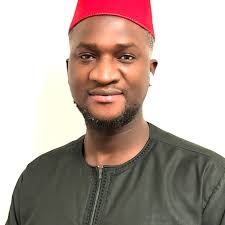By Dr Lamin K. Janneh
In response to Halifa Sallah’s public reply to my earlier letter, I offer this reflection not as a political figure but as a technocrat committed to the sustainable development of The Gambia. We must urgently bridge the gap between legacy and leadership transition. This letter is not merely a critique; it is a call to action and a proposed blueprint for a better Gambia.
Dear Uncle Halifa Sallah,
You claimed I addressed “the right letter to the wrong man.” Respectfully, I disagree.
I am not responding to you as a youth seeking validation, nor as a sentimental follower or a critic this time; I wrote as a professional with over two decades of national and international experience in development, governance, and strategic communication. My intent was not to provoke, but to challenge assumptions, test ideas, and present an alternative vision rooted in practical experience and global realities.
Your recent indication that you may return to presidential politics, despite previously declaring that your last candidacy would be your final one, warrants scrutiny. It is not your legacy I question, but your consistency. You have often championed political ethics, and it is only fitting that you be held to the same high standards.
Your response, while eloquent and rich in metaphor, evaded this central inconsistency. It offered a philosophical meditation on duty and generational transition, but it failed to directly address the urgent demand for political accountability raised by your own statement.
On Generational Leadership and Readiness;
You challenged me to name a young Gambian capable of leading national transformation. Respectfully, the premise of that challenge is flawed. Competence is not bound by age, nor is wisdom monopolised by elders. Today, leadership is defined by vision, execution, adaptability, and moral clarity.
There are many capable Gambians, both at home and in the diaspora, who have led portfolios larger than our national GDP and managed multi-million-dollar projects in health, infrastructure, finance, education, and digital transformation. They serve as senior consultants in international corporations, hold director-level positions at institutions like the African Development Bank and UNDP, act as architects of fintech ecosystems, and lead public health interventions that affect millions globally.
These individuals are not hypothetical; they are proven. Their exclusion from the national leadership discourse is not a reflection of their absence, but of a systemic failure within our political institutions to recognise, nurture, and elevate talent.
If specific names are required, I can furnish plenty. Gambians are already leading in global institutions, within the United Nations system, in continental think tanks, and at international corporations. But the real issue is not a lack of talent; it is the lack of political mechanisms to welcome such individuals into national leadership. Your legacy would be best preserved by opening that door rather than guarding it.
After 35 years of PDOIS’s existence, your inability to identify even a single successor from within your party is not an indictment of the capacity of our youth; it is a profound indictment of your party’s structural failure to mentor and empower new leaders. If an organisation that claims to represent the most enlightened political ideals cannot produce one credible flagbearer in over three decades, then it is the organisation, not the young people, that has failed.
PDOIS and the Question of Internal Democracy;
You cited Article 90 and your party’s quorum-based decisions to demonstrate that PDOIS is internally democratic. Yet for over 20 years, you have remained its de facto presidential candidate. This suggests not a democratic rotation of leadership, but a symbolic monopoly.
True democracy is not solely about process, but ultimately about tangible outcomes. If your structures have not yielded new leadership capable of succeeding you, then the system itself must be re-examined. Either there has been no effort to prepare new leaders, or those who emerged were stifled.
In functioning democracies, leadership is not only about service; it is also about preparing successors who can do even better. Leadership that does not evolve becomes a form of intellectual autocracy, no matter how well-intentioned.
From Legacy to Relevance
Mr. Sallah, your contributions to The Gambia’s democratic awakening are part of our collective memory. However, legacy without transition inevitably leads to stagnation.
You have said that you do not intend to seek elective office again, and that is honourable. However, you must not retreat into isolation. Mentorship must replace martyrdom; elders must open space, not just hold court.
Young Gambians are not a threat. We are not waiting to replace you; we are preparing to complement the foundation you have laid, to carry forward what is worthy, and to redesign what is obsolete.
This is not a call for elder‐bashing; it is a call for collaborative nation-building, where wisdom guides and innovation builds.
A Final Proposal
Let us move beyond open letters. I invite you to co-convene a National Forum on Political Transition and Institutional Innovation. Let us bring elder statesmen and younger professionals together, in dialogue, in strategy, in co-creation. Let us make this a blueprint for “Team Gambia 2026” in real terms rather than just rhetorical ones.
Many young Gambian technocrats are ready and capable. They are no longer asking for space; they are creating it themselves.
Respectfully,
Note: I am not pursuing political leadership. I write solely as a concerned Gambian, committed to contributing where I can. Our nation is diverse enough to accommodate various forms of service.”
Dr Lamin K. Janneh


















